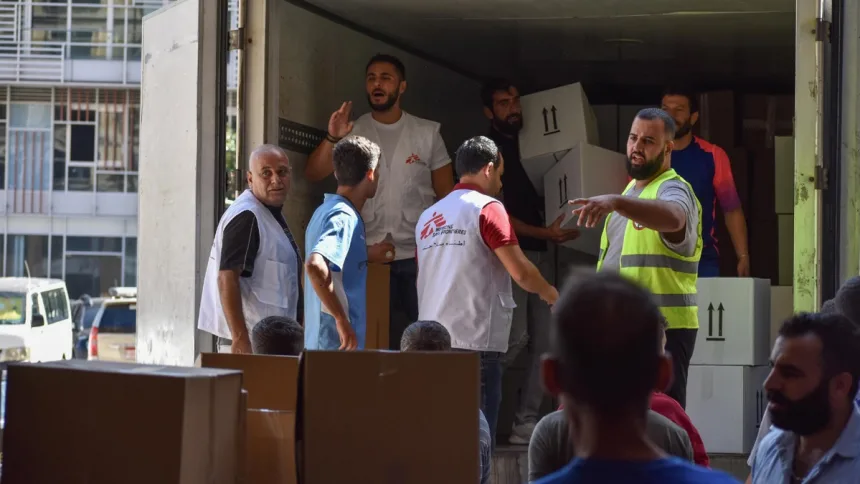Beirut- October 2024- As Israeli airstrikes intensify across Lebanon, healthcare facilities in heavily bombarded areas are being forced to shut down, leaving civilians without access to critical medical services. Médecins Sans Frontières (MSF) has been working tirelessly to keep its facilities operational and expand its activities to meet the growing needs caused by the ongoing conflict. However, some facilities have been forced to close due to the escalating violence, disrupting essential healthcare services.
MSF is urging all parties involved in the conflict to protect civilians, medical facilities, and healthcare workers to ensure uninterrupted access to vital healthcare services. “Given the intensity of the violence, road damage, and the lack of guaranteed safety, we are currently unable to reach all affected areas in Lebanon despite the increasing medical and humanitarian needs,” said François Zamparini, MSF’s emergency coordinator in Lebanon.
Last week, MSF had to close its clinic in the Palestinian camp of Burj el Barajneh, located in the southern suburbs of Beirut, and temporarily halt its operations in Baalbek-Hermel, a region in northeast Lebanon hit hard by the strikes. Despite these closures, MSF partially reopened its clinic in Hermel to provide patients with essential medications, offering two-to-three months’ worth of supplies, depending on the severity of their conditions.
MSF’s operations in southern Lebanon have also been severely hampered due to safety concerns. One of the hospitals in Nabatiyeh, which MSF had supported with donated trauma kits and medications, was hit on 5 October, just kilometres from the active frontlines. The strikes have made it impossible for MSF’s mobile medical team to operate in areas near the southern border, forcing them to retreat to Saida, 50 kilometres north of the conflict zone.
Also Read: MSF responds to Israeli bombing in Lebanon
The situation has claimed the lives of at least fifty paramedics in the last two weeks, bringing the total number of healthcare workers killed since last October to over a hundred. Six hospitals and 40 healthcare centres have shut down as the conflict escalates, according to the Lebanese Ministry of Public Health and the UN Office for the Coordination of Humanitarian Affairs (OCHA).
With Lebanon already facing a healthcare crisis due to economic instability, the conflict has exacerbated the strain on medical facilities. MSF continues to provide essential services, including mental health support and mobile medical teams, but the overwhelming needs of the displaced population far exceed available resources.
“We must ensure the continuation of care for those in need,” emphasises Zamparini. “We urge all parties to respect international humanitarian law. Civilians and civilian infrastructure, medical facilities and medical personnel must not be targeted. Their safety must be guaranteed.”



















